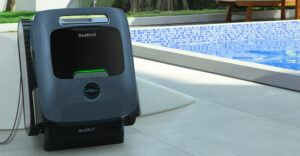
If you’ve ever had the opportunity to sit through a retailer’s comparative demonstration of high-end audio equipment, you’ll know that the more expensive the living room audio gear gets, the better it sounds. Amazing, but true — they’re not lying.
The big problem, once you’ve sat through one of these comparisons, is that you’re going to come to the unfortunate realization that you need to hand over many, many thousands of dollars to buy the best stuff. Anything less expensive, and you know it is second rate — you’ve just heard that with your own ears.

By the way, if you’ve never had such a demo, get one — just leave your bank card at home.
In any case, Light Harmonic is a maker of some of this high-end gear, and its principal product is the Da Vinci DAC, an award-winning, audiophile-oriented digital-to-analog converter that can cost around US$20,000. Makes for a nice-sounding living room, if you’ve got the money.
Soon, however, even if you haven’t got the means to buy a Da Vinci, LH Labs — a kind-hearted division of Light Harmonic — wants to make some of its DAC technology, including its well-known quiet DC power circuits, available to the proletariat masses. That’s where its Indiegogo crowdfunding project Geek Pulse comes in.
Geek Pulse is a budget-priced, high-definition DAC and headphone amplifier seeking — and finding — funding on Indiegogo right now.
What Is It?
DACs are an important part of audio reproduction, because they take the zeros-and-ones digital signal — a method by which all audio is stored — and convert it to analog, with a resulting wave-form, by which the ear comprehends music. The better the DAC, the better the vibration that your ear hears.
DACs are found everywhere, from sub-$20 MP3 file players to TV-linked Blue-ray disc players to the Da Vinci. The problem with most of them, though, is that DC power isn’t clean enough, and also that they can’t handle the large amounts of data used in new forms of audio creation.
This DAC, on the other hand, promises that it will do those things — and at a reasonable price.
Tagline: “A Digital Audio Awesomifier for Your Desktop.”
The Details
Multiple inputs and outputs allow flexible connections, including amplifier, PC or CD player. Output includes RCA connectors — the red and white or black ones commonly seen on audio gear — and headphones.
The headphone output is via an included amplifier that drives high-end headphones. It’s rare for budget gear to be able to drive high-end headphones because typically they need too much power.
A version of the DAC called Geek Pulse X is a balanced version. “Balanced” is a term used to describe a particular type of audio connection design. You take your choice — and this kind of thing is why they use the word “geek” in the product name.
There is also a proposed Geek Blue add-on for Bluetooth connections as well as various noise-reducing, high-end optional USB cables.
The Numbers
Sacramento, Calif.-based LH Labs currently has more than 1,760 funders for its Geek Pulse DAC project contributing more than $420,000 of a $38,000 goal. The funding period ends on Dec. 20, 2013.
A pledge of $299 gets you an early bird Geek Pulse at 40 percent off retail. A reseller pack with 12 units comes in at $2,268. Estimated delivery is April 2014.
The Upsides
Including cost, there are some unique facets to this product. One is a conceivable improvement over the way that headphones allow the ear to interpret space — the aforementioned 3D “awesomifier” in the tagline.
Because of left and right ear isolation, headphones bring forward the normal sound stage. However, Geek Pulse replicates the effect of open-air speakers and positions the music in front of you. If LH Labs gets this right, it could reduce fatigue associated with headphone listening.
Light Harmonic does know what it’s doing: It successfully launched a Kickstarter-funded smaller and less full-featured DAC recently.
The Downside
There are sub-$500 audiophile-geared DACs out there and available now, so it’s not like this is the only solution.
The Conclusion
The punters are going to be the deciders, and they’ll make that decision based almost solely on audio quality, plus price sensitivity and features like included headphone amp and other connections. Looking at the significant Indiegogo contributions thus far, though, it looks like they may have already decided.





















































